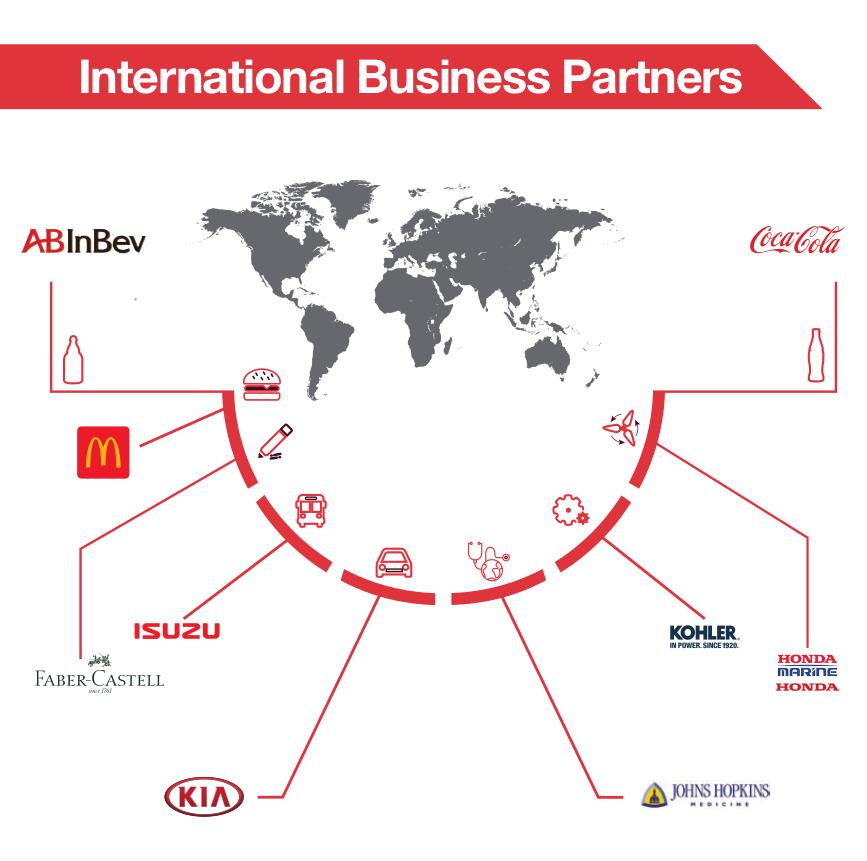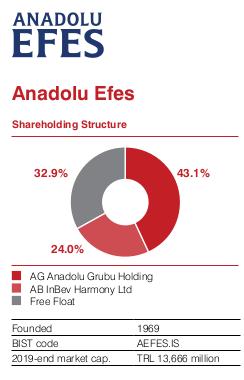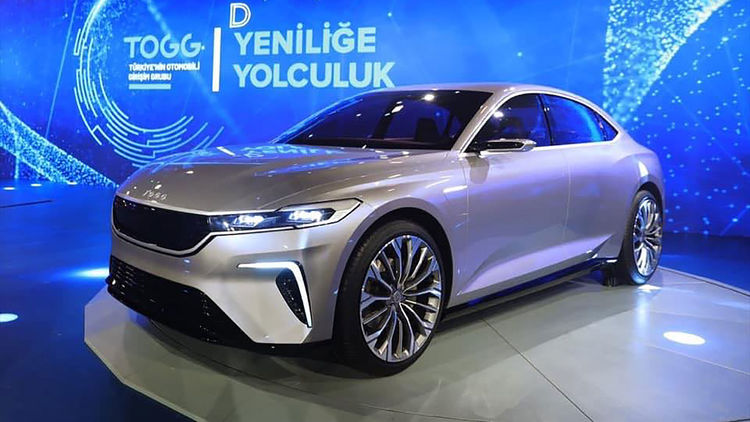"Today we are experiencing a historic day for our country, experiencing how a dream of 60 years ago comes true". These were Erdogan's words after the presentation of the two prototype models of the new electric cars in December last year, which are scheduled to roll off the production line in Turkey from 2022. Then "Turkey will finally have its own car brand". The plans have become more concrete, and new details were published in August. The first export market is to be Germany among others. But: Is the e-car production in Turkey really a sign of the strength of the independent national economy?
The manufacturer is the joint venture TOGG (Türkiye'nin Otomobili Girişim Grubu), in which five Turkish companies - the Anadolu Group, BMC, Koç Holding, the mobile phone operator Turkcell and Zorlu Holding - and the "Union of Chambers and Stock Exchanges in Turkey" are involved. The project manager and CEO is Gürcan Karakas, a former Bosch manager who has been working in Germany for many years.
Until recently, Turkcell was 47.1% owned by the Swedish Telia Company, as by far the largest shareholder. The vehicle manufacturer BMC (Turkey) was founded in the 1960s as a branch of the British company of the same name (BMC stands for British Motor Corporation). The other three TOGG companies involved are conglomerates. Their subsidiaries produce mainly for foreign companies. Koç Holding owns, for example, car manufacturers Tofaş (founded jointly with Fiat) and Otosan, which produce for Fiat/Peugeot and Ford, and others under the leadership of Ford, Unicredit, Case New Holland and many others.

The situation is no different with the Anadolu Group. In order to examine the functional principles of the large Turkish business groups, we will use it as an example here: In 1960, the Anadolu Group founded its first company, Çelik Motor, which made its business by selling vehicles from the Czech manufacturers Skoda and Jawa (led by the economy of Soviet social imperialism) and the Austrian-based Steyr-Daimler-Puch AG. The "cooperation" with foreign companies for the development of "own companies" was expanded in the following years, such as with the Italian engine manufacturer Lombardini or the German stationery manufacturer Faber-Castell. This means that from the very beginning, the capital that went into the development of the Anadolu Group and its production came from abroad; the Anadolu Group was built up by foreign capital. With time, mainly Yankee companies began to build new Anadolu companies on this basis. Today, almost the entire leadership of the conglomerate has studied in the United States and the group manages six major companies on the Istanbul Stock Exchange - for beer, soft drinks, cars, "social organizations", retail and "agriculture, energy and industry". It claims to operate in nine different sectors, and for most of these sectors it lists one or two important "international trading partners": Beer (AB InBev), fast food (McDonald's), stationery (Faber-Castell), cars (KIA / Isuzu), soft drinks (Coca Cola), retail, agriculture, energy and real estate; in addition, " social organizations" (John Hopkins Medicine). Share ownership in the six listed companies of Anadolu tends to be: one half held by the group itself, one quarter by the most important "international trading partner", and the other is in free float. In the case of the beer group "Anadolu Efes", 24.0% share (as of 2019, as all the following data) is held by AB InBev Harmony Ltd and 43.1% by the Anadolu Goup, in the case of the car company "Anadolu Isuzu" 29.7% by Isuzu&Itochu and 55.4% by Anadolu, in the case of the stationery manufacturer "Adel Kalemcilik" 15.4% by Faber-Castell AG and 56.9% by Anadolu. Often a quarter of the shareholding has long been enough for control of a company when the majority is in free float. Here, the majority belongs to the parent company or a larger subsidiary of it - Anadolu Efes is the majority shareholder in, among others, the soft drink group "Coca-Cola İçecek (CCI)" (The Coca-Cola Company owns 20.1%) - behind which there is nothing other than the foreign capital invested in the subsidiaries of the Anadolu Group. Thus, this share can again be broken down into numerous parts, and what remains is the relative possibility of control by the foreign company with the (by far) largest shares.

Now to the question of the technology of the new cars. The design specifications and developed prototypes are from the Italian company Pininfarina. The detailed vehicle development of the SUV model is now taking place in Wiesbaden and Fulda at the German-Swiss engineering service provider Edag. So Turkish companies have nothing at all to contribute to the design or, as a local newspaper aptly describes it: "From the chassis to the ashtray, everything is conceived in East Hesse " The export of technology as part of bureaucratic capitalism serves the imperialists by increasing the dependence of bureaucratic capital.
A joint venture of (merged) corporations, which have come to know the automobile industry as subsidiaries of foreign firms or have subsidiaries dependent on foreign automobile manufacturers and monopolies such as Ford and Honda, builds an electric car with fully imported technology. This is not the sign of strong economic independence, but rather of a strong dependence, the attachment to the imperialist financial capital that unfolds bureaucratic capitalism in the oppressed nation Turkey. There is no independent economic development, but only through capital coming from abroad. Time and again this is negated and Turkey is labeled a capitalist country. Of course Koç Holding is a big company and of course Erdogan has a big palace. But it depends, as we know, not only on the size, but also on who and what is behind it.

